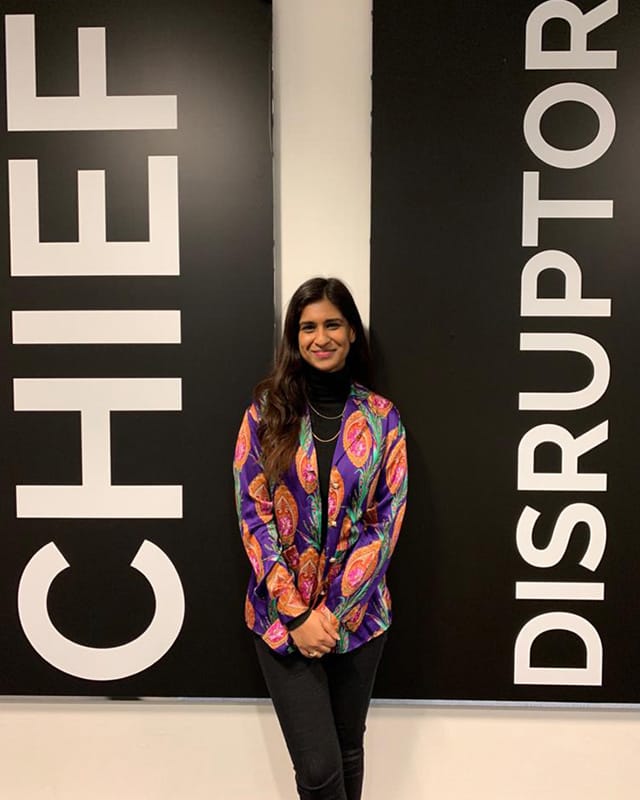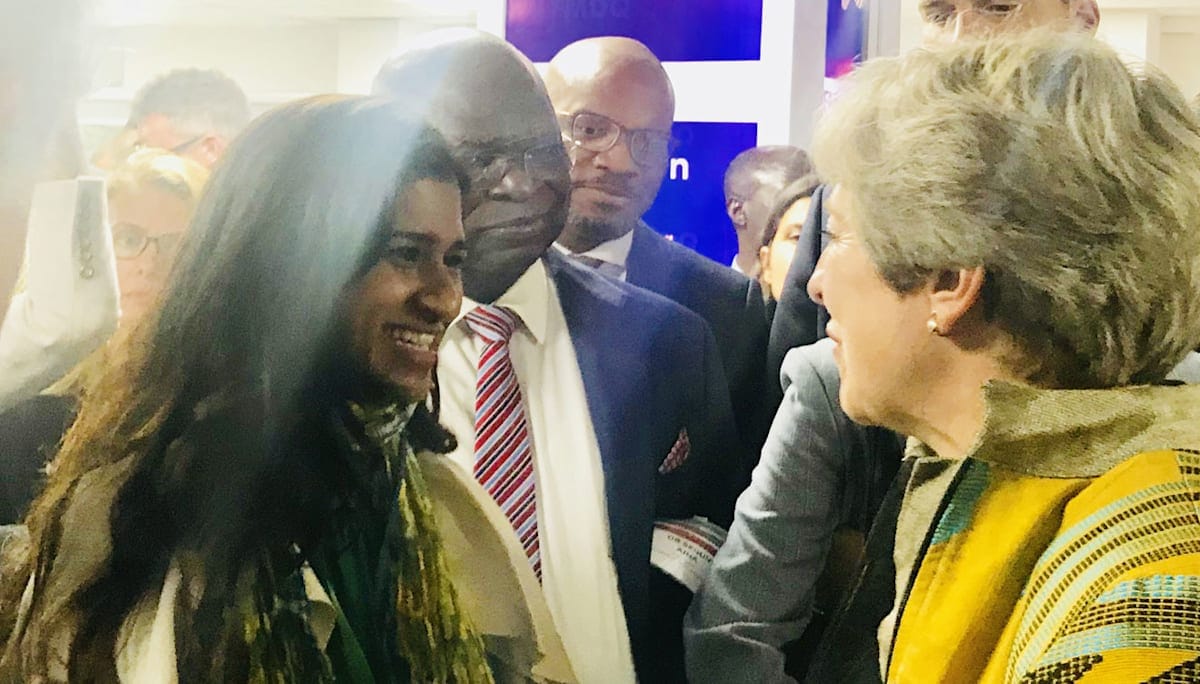
Barely out of her teens, with an illustrious career ahead of her with multinational company Shell, Manjula Lee had “an epiphany” on a flight back from Amsterdam to Australia.
The youngest person chosen for Shell’s executive leadership program, after she had completed an industry-based business systems degree as a scholarship student at Monash University in 2000, Lee says: “I had started to see data about the real threat to climate change if we kept digging for oil. Although I loved working for Shell, I asked myself, ‘Is this really my calling?’”
Lee took a year’s sabbatical and began working with, and advising, charities. She was passionate about human rights and international development, having experienced poverty and injustice first-hand.
Born in civil war-torn Sri Lanka, she had lived in Zambia, then apartheid-era South Africa, where she couldn’t “use the same door, drink from the same tap or go to the same school as a white person”. Her family finally moved to Australia, where Lee attended high school.
With her corporate experience from Shell, Lee quickly identified major problems within the charity sector. “We were trying to solve the world’s greatest ills through this one sector, but there appeared to be no commercial rigour, and no real accountability. Everyone struggled to monitor or measure impact – how, or if, the money was making a difference.”
The missing piece of the puzzle
Lee was based in London as head of philanthropy for Habitat for Humanity, the international housing charity, when the United Nations published its 17 Sustainable Development Goals (SDGs) in 2015. They included climate action and eradicating world poverty and inequality by 2030. Inspired, she designed a green, affordable housing program that could be scaled worldwide.
"It’s a myth that social impact is high-risk, low-reward. Companies aligned to the SDGs perform very strongly commercially."
Prince Charles, who Lee met through her work, agreed to be an ambassador for the program, but she was unable to find anyone to back a project of such ambition and scope. So she left the non-profit arena and founded World Wide Generation (WWG), a company aiming to bring together governments, business, civil society and citizens to deliver the SDGs.
Lee spent years brainstorming with businesses, financial institutions, NGOs and governments, trying to find “the missing piece of the puzzle” that was preventing sufficient capital flowing into sustainability projects. With no real tech background, apart from her Monash degree in business systems, she designed and developed a global monitoring and measurement system, G17eco.
G17Eco platform
The G17Eco platform, which went live in July after four years of research and development, can map, monitor, measure, manage and market the progress of companies, countries and NGOs towards the SDGs.

As Lee explains: “I realised no-one could get access to trusted data on sustainability performance, in order to know where to invest and divest, and how to manage risk.”
It’s a myth that social impact is high-risk, low-reward, she says. “Companies aligned to the SDGs perform very strongly commercially. The new generation are adopting brands that articulate their impact on society and the planet.”
WWG’s first investors were Lee’s older sister, her best friend and a mother at her daughter’s school. The British government helped incubate the platform through its Global Entrepreneur Programme. Multinational Unilever was WWG’s first client.
In 2018, Lee was invited to pitch G17Eco to then British prime minister Theresa May. WWG was subsequently named as the technology partner of the UK’s Sustainable Development Capital Initiative, with G17Eco to provide the global market infrastructure for raising the necessary investment to meet the SDGs. Lee also accompanied May on a week-long trade mission to Africa.

The G17Eco platform, which went live in July after four years of research and development, can map, monitor, measure, manage and market the progress of companies, countries and NGOs towards the SDGs.
Lee stresses that it’s not just a corporate reporting tool, but “a movement for change”. And she says the COVID-19 lockdown has accelerated that movement, with organisations worldwide resolving to incorporate the SDGs into their recovery strategies.
“I’m surprised by how many senior leaders from around the world have got in contact recently to offer their help in bringing G17Eco to their countries,” she says.
Last year, Lee visited Monash’s Sustainable Development Institute. Its chair, Professor John Thwaites, is now on G17Eco’s Standards Council. “It’s amazing to think how I’ve circled around and come back to Monash after 20 years,” she says.
Turning ideas into action
The Monash Sustainable Development Institute brings together leading researchers – the very best of the best – to focus on large-scale, interdisciplinary projects that address global issues aligned to the United Nations’ 17 Sustainable Development Goals.
Head to Monash Lens to gain insights into the impact of this work and read opinion pieces from the experts.





